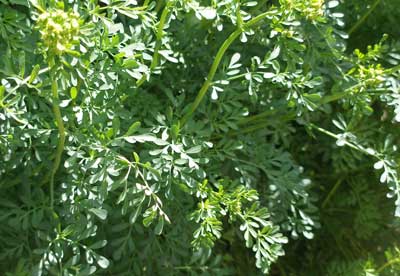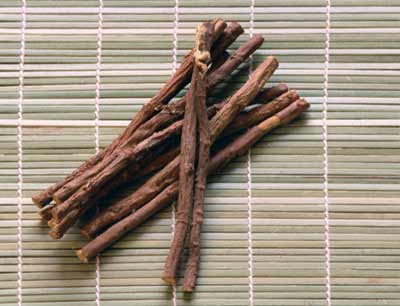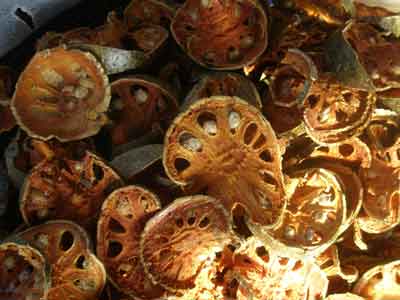
Rue. A very bitter herb, best added to cooking and removed quite rapidly. The better part of its flavour is then imparted and the bitterness reduced.
Lovage seeds from a plant of the caraway family, used mainly in Indian cooking. The greenish-brown seeds are a little larger than celery seeds and have a strong aroma of rather coarse thyme. Oregano can be substituted.

Liquorice. A sweet root with an aroma reminiscent of aniseed. Madhu generally means 'sweet in the Indian languages.

Bael fruit; a close relative of the citrus. The fruit is about the size of, and has the appearance of a greyish-yellow orange with a thin woody rind. The floury pulp is pale orange in colour and has numerous seeds. Dried slices are soaked and boiled and the resulting liquid sweetened and drunk. Used for medicinal purposes.
Bonito. A migratory fish which is available up to 25 lb (11.3 kg). Often sold as tuna, though it is not.
Belimbing. A relative of the carambola native to South East Asia, this is a light green, acidic fruit with a smooth yellow-green or slightly rough green skin and juicy, sour flesh. It is added to soups and stews or curries, to which it gives a sour flavour, or made into sweet and savoury preserves, chutneys and pickles. It is sometimes known as the cucumber tree because of the shape of its fruit.